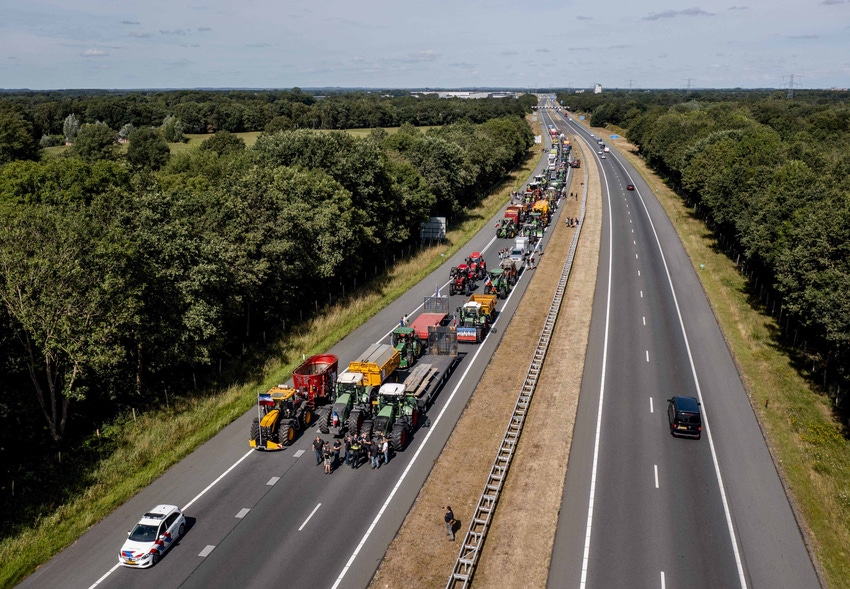Programs aim to reduce nitrogen emissions, open to small, medium-sized livestock farmers in the Netherlands that voluntary close breeding sites.
May 3, 2023

The European Commission has approved, under EU State aid rules, two Dutch programs with a total budget of around 1.47 billion euros ($1.61 billion USD) to reduce nitrogen deposition on nature conservation areas. The Commission says the measures will contribute to the EU's strategic objectives relating to the European Green Deal.
"The €1.47 billion Dutch schemes we approved today will facilitate the voluntary closure of livestock farming sites with substantive nitrogen deposition on nature conservation areas," said Margrethe Vestager, executive vice-president in charge of competition policy. "The schemes will improve the environment conditions in those areas and will promote a more sustainable and environmentally friendly production in the livestock sector, without unduly distorting competition."
The Netherlands notified the commission of its plans to adopt two plans, called LBV and LBV plus, to compensate livestock farmers for the voluntary definitive closure of livestock husbandry sites in the Natura 2000 areas, as defined in the national legislation.
The programs, which will run until Feb. 27, 2028, are open to small and medium-sized livestock farmers in the Netherlands that voluntary close their breeding sites, provided that their current nitrogen deposition load exceed certain minimum levels.
Under the €500 million LBV plan, the aid will take the form of direct grants to compensate up to 100% of the losses incurred by farmers who decide to close their dairy cattle, pig and poultry breeding sites, in particular relating to the loss of production capacity and of production rights. Depending on the area where the breeding site is situated, to be eligible under the LBV plan, the breeding site concerned has to have certain minimum levels of nitrogen deposition load per year.
The €975 million LBV plus plan will be open to so-called peak-load emitting breeding sites who emit a high level of nitrogen per year, fixed as a minimum level. As the LBV plan, it will also be open to farmers breeding dairy cattle, pigs and poultry and, in addition, to farmers breeding veal calves. Also under this measure, the aid will take the form of direct grants to compensate up to 100% of the losses incurred by farmers who decide to close their breeding sites, in particular in relation to the loss of production rights as well as to demolition costs. As regards the loss of production capacity, under the LBV plus plan, the farmers concerned may receive up to 120% as compensation.
Under the plans, the beneficiaries guarantee that the closure of their production capacity is definitive and irreversible, and that they will not start the same breeding activity elsewhere in the Netherlands or within the EU.
The Commission assessed the plans under EU State aid rules, in particular Article 107(3)(c) of the Treaty on the Functioning of the European Union and under the 2023 Guidelines for State aid in the agricultural and forestry sectors and in rural areas. The Commission found that:
The aid facilitates the closure of certain sites, in favor of the sustainable and environmentally friendly development of livestock farming. At the same time, it supports the objectives of key EU policy initiatives such as the European Green Deal.
The plans are necessary and appropriate to improve the environmental conditions of the targeted areas and to allow a high quality, sustainable and environmentally friendly production. In addition, the aid is proportionate, as it is limited to the minimum necessary.
The aid brings about positive effects that outweigh any potential distortion of competition and trade in the EU. Moreover, the beneficiaries commit to the definitive closure of their livestock production. This commitment also binds any future purchaser or user of the livestock site concerned.
You May Also Like


.png?width=300&auto=webp&quality=80&disable=upscale)
